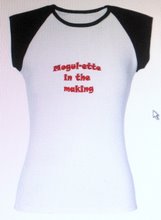 Internet Week is in full swing here in New York this week. There's tons of great events going on, including today's excellent panel on the Future of Media at NYU. Jack Dorsey, Co-founder and Chairman of Twitter (that's him in the suit in the right), was the first to be asked about whether its success is sustainable.
Internet Week is in full swing here in New York this week. There's tons of great events going on, including today's excellent panel on the Future of Media at NYU. Jack Dorsey, Co-founder and Chairman of Twitter (that's him in the suit in the right), was the first to be asked about whether its success is sustainable.
Jack: "Twitter is a success when people use it as a utility, a part of communication, like email, SMS and the telephone. We've seen phases of usage since it was launched. The product is being driven by users and developers. As for making money from it, by creating Twitter we made it possible for people to come up with different ways of using it and building applications for it, so we're treating the business model in the same way - by establishing patterns in usage, and seeing which ones can be monetized."
Patrick Phillips, Founder of I Want Media, moderated the forum, and then asked Jack if Twitter will be a rival to Google in search.
Jack: "There's room for both. It's a discovery engine. Twitter is more for vanity searches (for people to find out about themselves, their company). But it's also about discovering new content, people and things they didn't know about. News trends up on Twitter. The technology makes it very easy to be anywhere and report about it. It's good for "man on the street" accounts. What's missing is the editorial part - a cohesive narrative around the report. We need to bring journalistic integrity to the mass of messages."
Jack says that for news he checks what's trending up on Twitter first then he goes and reads the full story in the New York Times online.
When asked about social media policy, Alan Murray, Deputy Managing Editor at the Wall Street Journal referred to the recent memo that was circulated to employees regarding social networking do's and dont's. "Business and pleasure should not be mixed on Facebook and Twitter, don't talk about sources, but mostly the basic message is don't be stupid."
Bonnie Fuller (above), who resigned last year as EVP and editorial director at American Media and is now launching Bonnie Fuller Media, stayed mum about what her new company will be about. She was also coy about telling the audience how many followers she has on Twitter (4200+). But she felt strongly about there being enough room for multiple sources of news. To illustrate she pointed out that women 24-47 comprise a huge portion of the population and have varying tastes and habits so there's plenty of room for PerezHilton, People or The Enquirer or others (looks like she eyeing this demo, doesn't it?).
The conversation then moved to the future, and Alan said that in 10 years we'll have large Kindles or other electronic devices to deliver the news. Wow, that really sounds like the end of newspapers. I discussed this with fellow blogger and socialista Nichelle Stephens, who I bumped into on my way out. I think it would be great for trees, and of course that means no more inky fingers, but it's a concept that takes a little getting used to. We're kind of already there though. I use my HTC Touch to get news when I'm out and have time to kill. But I have to be somewhere where I can get internet access, so no reading on the subway. And the screen is tiny which makes it hard to read long articles. I guess that's what they'll address with the larger devices, but at home I probably would prefer to flip through the pages of a magazine or newspaper, not sure if I'd use a gadget for that, but ya never know. In the end it's all about changing with the times.
Those were some of the things I found interesting today but if you have about an hour to spare and want to watch the video click here.
Wednesday, June 3, 2009
Future of Media Discussed at NYU Panel
Subscribe to:
Post Comments (Atom)













1 comment:
It is an interesting concept, and it really makes me think about what things will be like in the near future. One thing I would hate to see disappear is the good old fashioned letter from the post office.
Post a Comment